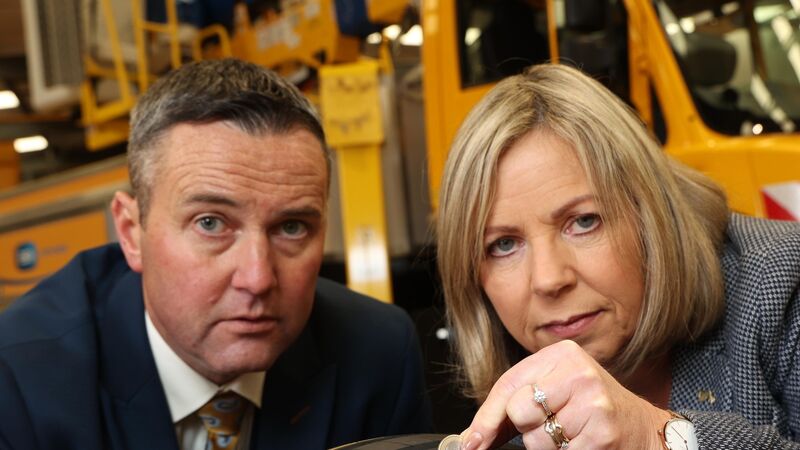Ireland has to 'change the narrative' if it is to reach zero road deaths by 2050

Sam Waide (left), CEO of the Road Safety Authority and Sue O’Neill, CEO of the Irish Tyre Industry Association. Sam Waide on road deaths in Ireland said this week: “We’re going backwards.” File picture: Robbie Reynolds
The message is clear: Ireland’s roads are more dangerous and more people are dying on them.
The Government has made a target for the number of road deaths to fall drastically by 2030. But that seems remote when we had already reached that target figure within just five months this year.











